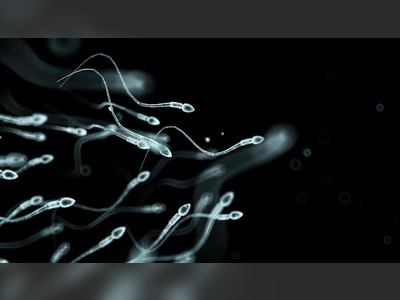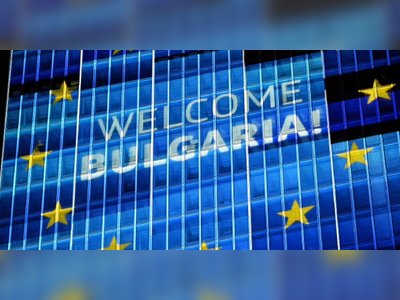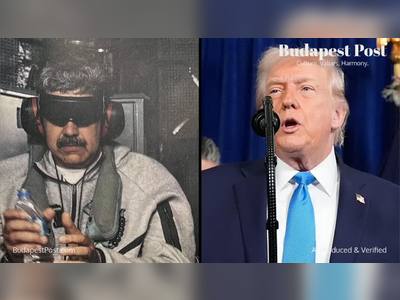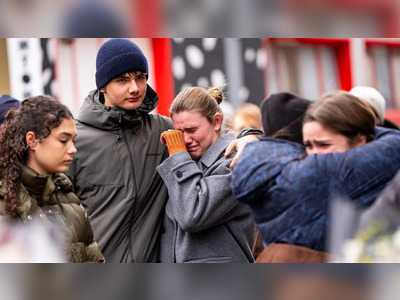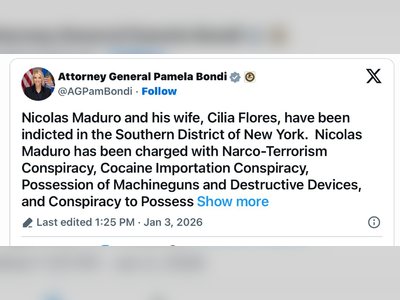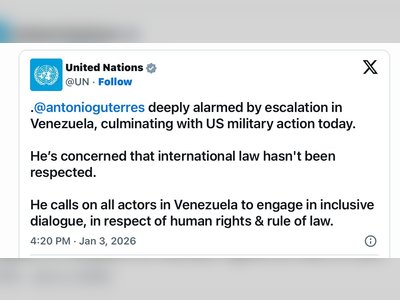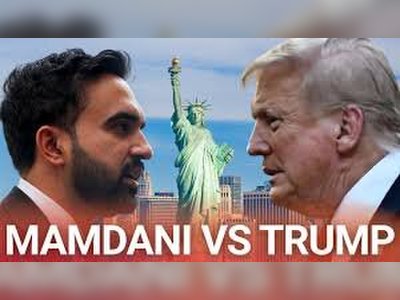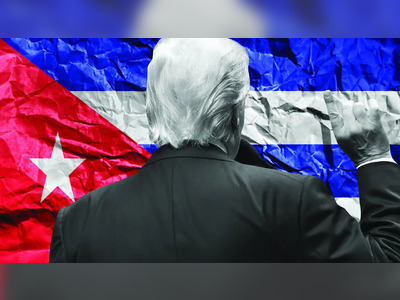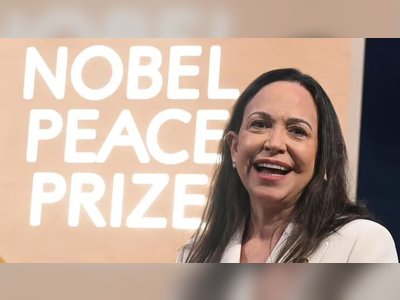
Cardinal Erdő: 20th-Century Religious Persecution Strengthened the Faith of Hungarian People
The 52nd International Eucharistic Congress in Budapest, which gathered faithful Sept. 5-12 from across the globe, put Hungary at the heart of the Catholic world.
The images of the fervor surrounding the various celebrations organized in the Hungarian capital throughout the week brought hope and comfort to a number of faithful, especially at a time when restrictions to religious freedom resulting from the global health crisis feed the further secularization of the West.
Indeed, according to Hungarian Cardinal Péter Erdő, while this de-Christianization phenomenon affects all Western countries, the Christian faithful from Eastern European countries, having suffered at the hands of the two totalitarian regimes of the 20th century (Nazism and Soviet communism), tend to better resist this worrying trend.
The Register interviewed the 69-year-old metropolitan archbishop of Esztergom-Budapest and primate of Hungary on the occasion of his visit to Rome for the jubilee assembly of the Council of the Bishops’ Conference of Europe (CCEE), Sept. 23-26.
Cardinal Erdő discussed the meaning of synodality, ahead of the 2023 Synod on this topic, as well as the peril of demographic winter that afflicts the West and the importance of a well-understood ecology.
The president of the CCEE between 2006 and 2016, Cardinal Erdő also served as the general relator of the Synods on the Family, in 2014 and 2015.
You are visiting Rome these days for the 50th anniversary of the CCEE. What does this council represent for you, in the Europe of yesterday and today?
The councils of the national and continental bishops’ conferences have existed for many decades, but they were founded at different historical moments. CELAM [the Latin American Episcopal Council], for example, was founded in Latin America in 1955, before Vatican II, during which the creation of national episcopal conferences became mandatory. Before that, there were many countries with no national conferences, while in other countries like Hungary, it had existed for 150 years, if not more.
In Europe, when this organization was founded, it was clear that it had to gather the experiences, testimonies, issues and joys of the various episcopates working in radically different social situations. The council actually includes Western Europe, countries that are very secularized but have a Protestant tradition, [and] other countries in Southwestern Europe that still have a deep Catholic culture but also have the feeling that the Church is burning. Then there are former communist countries with a Catholic undercurrent, or where Catholics are a small minority compared to Eastern Christians, or countries with a very large Islamic majority, such as Turkey. Then there is also Russia, where historically there is an Orthodox majority, but which is also a very secularized country.
We have different states, with different philosophies and ecclesiastical policies, different legislations, whether they are members of the European Union or not. Yet even in the Union itself, we know that Church policy is the responsibility of the nation states. It is evident that it is not the mission of any organization of this kind in Europe to give concrete pastoral directives that would be valid for all dioceses or to set up large central bureaucratic apparatuses. Instead, it is a matter of helping this fraternal dialogue where we get to know one another, see one another’s problems, seek to understand, help, and share our joys.
Europe is the only continent where the East-West alternative really makes sense. On no other continent does this reality exist, because from Roman times there was a cultural difference between East and West. And in Europe, some differences have remained, so it is a special vocation of the European episcopate to take this dialogue and this collaboration with Eastern Christianity seriously, both with Eastern Catholics and with Orthodoxy. Certainly it is not the task of a local episcopal organization to advance the dialogue on fundamental dogmatic issues. This is the competence of the Holy See. But on the social, moral and life issues of our continent, we can and must exchange all together. We have also had a very broad consensus, for example on issues of life, family, conscientious objection and many other things, such as social justice. It’s important for Christians to help each other.
You met with Pope Francis on the morning of Sept. 25. Can you tell us what you discussed with him?
We discussed the recent Eucharistic Congress of Budapest. I thanked the Holy Father for his kindness, for his welcome and for his visit to Hungary. He was also very pleased it seems to me, because he saw a very sincere, modest but joyful believing community, and this was an encounter of grace.
Let us pray for the Holy Father and let us see how we can listen more precisely to his words, because what he said in Budapest also emerged in some of his speeches and homilies of the last few days here in Rome, as well, for example that we must attend to the essential.
During the homily he pronounced in St. Peter’s Basilica on Sept. 23, during a Mass concelebrated with the European bishops, he spoke of this necessary relationship, also historical, with the substance of our faith. The Eucharistic Congress taught us that Christ is the center, the substance, the content of our faith and that he is a concrete, historical, present person. There are details, historical forms that can change, but this radical and historically concrete relationship is the vital force of the Church today, and this is a very joyful message.
What are your impressions about this recent Eucharistic Congress held in Budapest?
I perceived this event not as a manifestation, but as a great common prayer, a blessing for the whole city.
Unlike the first 1938 Congress, there were no uniformed groups of policemen or firemen, but people came spontaneously, in families with small children and this was wonderful. Christ, the Eucharist, were at the center of everything.
In an interview that appeared in the newspaper of the Hungarian bishops, you said that this Eucharistic Congress was a historic event for the Church of your country. Why do you think this event, which received modest press coverage, was so unique and important?
First of all because after 83 years, Catholics from all over the world gathered in our capital city. Certainly, without the pandemic, the groups would have been much more. But in spite of this, at the Eucharistic procession on Saturday evening [Sept. 11], there were about 300,000 participants, and there were at least 250,000 at the Holy Mass of the Pope the day after, for the closing Mass of the Congress. So, it was a good meeting, where practically all the currents of the Catholic world were represented.
Unlike many other Eucharistic Congresses, ours also had a certain ecumenical character, without forgetting that it was a Catholic event. During the years of preparation, the scientific conferences gave us the opportunity to speak with several professors and delegates from five Orthodox Churches, from three institutions of Jewish communities in Hungary and also with many Protestants, bishops or professors.
This richness helped us to regard each other with sympathy, with understanding, and the presence of members of the Orthodox Church also meant that they believe the same thing about the Eucharist. In fact, in so many aspects there is a unity of faith, even if communion is still not full with the Orthodox world. However, we all feel on the one hand the closeness, and on the other hand, the need for a common witness before the world. This was Christ’s desire, it was his command and it is also the need of our time.
It was also historic that the Patriarch of Constantinople was present at the Pope’s Holy Mass, and that he spoke the night before, in front of 100,000 people, on the Parliament Square before the Mass. It was he who canonized St. Stephen (who died in 1038, before the schism between East and West) for the Orthodox world in 2000. Then, at the beginning of the Congress, Metropolitan Hilarion of Moscow also gave a talk, presenting the rich theology of the Orthodox Church on the Eucharist, and so we reflected on this testimony.
There were also high-level representatives from all the Eastern Rite Catholic communities. Melkite Patriarch Youssef Absi presided a very large concelebration of Byzantine liturgy in the Basilica of Budapest Sept. 8. It gathered so many faithful, not only in the basilica but also on the whole square outside.
Besides that, for the very first time, the ordinary of the Sept. 9 Mass was sung in Romani language, which is the most widespread language of the gypsies in Europe. We have been working together with this community for decades. We created a group of intellectuals who prepared the translation of the whole Bible, which we also delivered to the Holy Father a few years ago. Then we worked on the translation of the liturgical texts in this language and with their music, we started the liturgical life, which was a big event in the history of that community.
Finally, I would also mention the celebration of a Mass called Budapest Klezmer, that is of popular Jewish tradition, with the Catholic Mass.
There were relationships of friendship and pastoral collaboration with people who came from many parts of the world to share their experience and their faith, including many laypeople, founders of spirituality movements, such as Moysés Louro de Azevedo Filho from Brazil, founder of the Shalom Movement, which works very well among young people in Budapest, and many others such as the Emmanuel community. I admired the richness of these movements.
Prior to the Congress, you gave a press conference in which you introduced the hymn for this 2021 meeting, which took up the lyrics of the 1938 anthem. You said that these words then helped the people during World War II, which broke out a year later. What do you think are the historical parallels we can draw with the world of 83 years ago, whose atmosphere was already, to say the least, highly charged?
In my opinion, today, compared to 1938, the greatest temptation, the greatest danger, is despair, general despair. And against despair, how does the human person react? With selfishness. So, we say “carpe diem,” let’s feel good in this moment. No matter the past, no matter the future, let’s feel good right now. But we Catholics say that it shouldn’t be so because the world has a meaning, we ourselves have a vocation. We are responsible, also for each other, and this is the real reason for the Church’s charitable activity which was, among other things, also at the heart of the Eucharistic Congress: On the first day, we ate together with 5,000 homeless and needy people in Budapest in a large square and at the same time in all the episcopal cities of the country.
Surely, with despair is connected another aspect of that general attitude and feeling, which is the demographic winter. And on the other hand, the fear of overpopulation of the Earth. Also in this respect, Pope Francis’ encyclical Laudato Sì is interesting because even the resources of the Earth must be used with respect and responsibility. If economic differences grow to the limit, if selfishness is one of the major forces that determine economic activities, then of course we end up with a civilization of waste, denounced so many times by the Holy Father. We must instead find a concrete method to build the civilization of love, not only because it is a good feeling, but also because God loves us, so the context requires this attitude from us.
Moreover, I would definitely mention the importance of the family and creation, as well, but our responsibility for the so-called nature, for the environment, is well founded only if we consider all this as God’s creation. With his help, we have the strength, the optimism and the meaning of this work that seems greater than our strength.
We have to be aware that humanity can go through epochs, in its history, in which it has to face forces that are much more powerful than it is. So, we are not the masters of history, of the world, of nature. We can do different things but the master is someone else. This master of ours is personal, not a mechanical, faceless force. And beyond his personality, he loves us. We are truly — especially in our Judeo-Christian culture — connected with the personal God, the unique God who is the master of history, who gives confidence to humanity.
After the Eucharistic Congress, several Church leaders, including Patriarch Bechara Rai of Antioch, were enthused about the faith of the Hungarian people, speaking of a “people who loves religion and God,” which is quite rare in the European landscape. How do you explain this fervor of the Hungarian people in this general context of de-Christianization?
First of all, the Hungarians in general are, like the other peoples of the region, a secularized people. Even the attendance at Sunday Mass by Catholics is about 12%, which is not too high. We also have phenomena that are typical of post-communist or post-Soviet secularism, which is a little different from the consumerist secularism of the West but that is no less serious.
However, believers do believe, so those who practice a religion for the very large part do not do so out of pure custom, out of folkloric tradition, but out of thoughtful conviction. They know that the generations before us had to pay for this faith in person, had to suffer for it. My dad, for example, was never involved in politics but still, he was considered too religious. My mom was a teacher but she couldn’t teach because she was considered too religious, too. Therefore, we at home understood that religion, faith in God, is the most important thing. It is not only a cultural tradition but something bigger, more existential, more important. Those who have seen these examples of faith remember it.
And that is why we did the preparatory mission of the Eucharistic Congress for four years with the missionary cross — blessed by Pope Francis — which contains the relics of Hungarian saints and neighboring peoples, especially the martyrs of the 20th century.
This mission was always accompanied by exhibitions that explained the life and martyrdom of all these saints. Thus, the communities where the cross arrived had the opportunity to reflect on their own roots, not only in Hungary but also in Zagreb [Croatia], in Romania, in Slovakia, in Serbia. ... This was a truly profound mission.
I also saw this fervor through adoration during the Congress. At the beginning of this preparatory mission, I thought that adoration belonged to forms of piety that were less fashionable by now, but in the end, at these celebrations I met mostly young people who willingly came to adoration, even silent or musical adoration with short meditations, because this form is very close to their hearts.
During the times of adoration during the Congress, there were at first 1,000 participants, then 2,000, 3,000 and finally on Friday evening [Sept. 10] 15,000 attended! It was really moving.
Another fruit of this congress was the creation of an internet page that offers help to families for all problematic situations of daily life (marriage preparation, couple problems, pregnancy, bioethics, education, social problems, isolated elderly, and many other things) so that they can receive assistance from Catholic professionals in any situation.
You were the General Relator of the Synod on the Family in 2014 and 2015 and, therefore, you were personally involved in these discussions that received a wide media coverage and aroused intense debates. What are your expectations and hopes for the upcoming Synod on Synodality that is being prepared, notably through a consultation process of Catholics around the world?
On October 17, with a Solemn Masses, we will open the synodal path in all our dioceses, including in Hungary of course. The word synodality has been a novelty in the ecclesial language for a few decades. But the reality is that the Holy Spirit also assists the Church in a collective way, it is a truth that is deeply rooted in the Bible, in the Old and New Testaments. On the one hand, all of God’s people are under the assistance of the Spirit, and there was also talk of the Guardian Spirit of the Temple of Jerusalem, to give an example. We speak of course of the spirit of the Church, of the Holy Spirit given to the whole community of Christ’s faithful.
Obviously, through their Baptism, all the faithful receive the Holy Spirit. On the other hand, different groups, different categories of people dedicated to the service of the Church, such as presbyters, bishops, receive the gift of the Holy Spirit in a very special way.
They say that the presbyters of the synagogue communities had the consciousness of being bearers of a gift of the Spirit. Then, they quote for example the Apostolic Tradition which brings back a prayer of ordination of presbyters in which reference is made to the ascension of the spirit of Moses upon the seventy elders chosen to help him in his service as leader of the people. Then other early Christian writings such as mention a spirit of the presbytery of the College of Presbyters.
On the other hand, people were also beginning to speak of bishops as a college, as successors to the College of Apostles. The same idea was present for the presbyters of the local Church, thus following different degrees for the same Church. So, the Church had an awareness of a special assistance of the Holy Spirit to groups that were called or consecrated to help the life of the Church in a special way.
The famous Letter of the so-called Council of JerusalemCouncil of Jerusalem recorded in the Acts of the Apostles says that the Holy Spirit and themselves found this or that thing right, and so they solved the problems of the life of the Christian community. Therefore, the assistance of the Holy Spirit, when we pray and work together for the good of the Church, is a theological reality that we also hope to experience...Keeping in mind, however, the fundamental connection with the historical Jesus Christ, with his teaching, with his person because that spirit that says that Christ came in the flesh comes from God. Consequently, it is not a question of an unlimited spiritualism, of a purely theoretical attitude detached from historical reality, from the basis of our faith.
